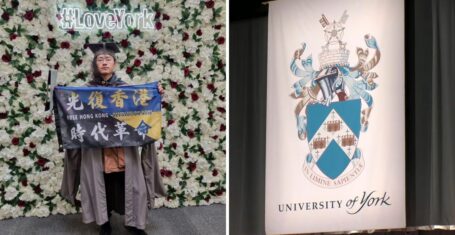
York announces Sexual Violence Steering Group as a result of The Last Taboo
It found 54 per cent of female York students have been sexually assaulted
TW: Sexual assault and harassment
The University of York has published a formal response to The Last Taboo’s Report regarding sexual violence at the university which includes a new Sexual Violence Steering Group.
The Last Taboo, a York based organisation aiming to tackle the issue of sexual assault and sexual harassment across the UK, published a report in April, detailing the extent of sexual violence at the University of York and the effectiveness of how incidents are handled by the university.
The report, carried out by York students Kelly Balmer and Imogen Horrocks, found that 54 per cent of female University of York students have been sexually assaulted and 71 per cent wouldn’t feel comfortable reporting their harassment or assault to the university.
In response to the findings, the university has announced that it has already secured additional funding for roles within the Conduct and Respect Team, developed new training for “Responding to Disclosure of Sexual Violence Training” for all staff at the university, and dedicated senior staff to support culture change and awareness across the university. The report also prompted the establishment of a new Sexual Violence Steering Group to develop the university’s Sexual Violence Action Plan.
The university also made their responses to all 50+ recommendations made by The Last Taboo public. This included plans to separate student misconduct from academic misconduct in university regulations and a promise of being ‘as transparent as possible’ in regards to investigations.
The York Tab spoke to Imogen Horrocks, President of the York branch of The Last Taboo, who said: “We are extremely pleased that the university has used our report as an opportunity to listen to students and take the first step towards tackling an institutional attitude that tolerates sexual violence. We are very grateful to have been given the opportunity to present the findings of our report to the Student Life Committee where we had some difficult but necessary conversations.”
She went on to say: “The response to our report that we have received from the university has been extremely promising. It is really positive to see that some of our recommendations are already being worked on, for example, separating academic misconduct from other forms of misconduct. However, it is important to recognise that the action plan set out by the university is only the first step towards tackling such an important issue.”
However, she added: “While the responses to some of our recommendations are not what we were hoping for, the university has provided an explanation as to why some of our recommendations might not be feasible at this current moment. We are pleased to see that the university is keeping students informed and up to date on their ongoing work. This increase in transparency is a crucial step for the university and one that we support.
This is a great starting point in challenging this culture of sexual violence and we are hopeful that we can continue to work collaboratively with the university to ensure these changes are implemented and that we keep making progress as a collective. We are also hopeful that this will help to set a precedent for other universities across the UK to enable them to challenge such a detrimental culture and implement the necessary changes.”
Support services are linked here and The University of York Support and Report tool can be found here for students at the university affected by sexual violence.
Related articles recommended by this writer:
• 54 per cent of female University of York students have been sexually assaulted
• Uni of York announces new college named after human rights defender David Kato
• One in four York students have experienced mental health difficulties over housing issues









































